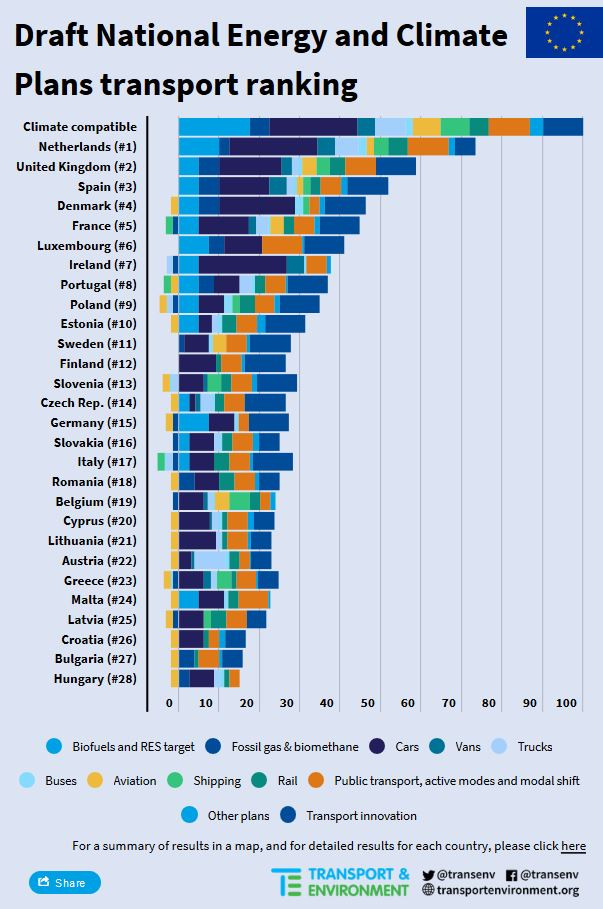Climate plans for Germany’s transport sector insufficient – ranking
Transport & Environment / Economy ministry
EU governments’ plans to cut pollution from transport will fail to meet their own 2030 emissions targets, according to a ranking by NGO Transport & Environment. Europe’s largest economy, Germany, is among the lower ranked countries (15th), setting itself up to pay billions of euros to other countries for missing emissions goals in the sectors not covered by the European Union Emissions Trading System (ETS). Transport & Environment assessed the transport sections of the countries’ draft National Energy and Climate Plans (NECPs), submitted to the European Commission. The NGO criticised that Germany had left many decisions open in the first draft, which must now be defined for the final version by the end of the year. For example, the draft largely ignores trucks, aviation and the railways sector, according to the ranking.
In a separate press release, the economy ministry announced the start of the public consultation process on Germany’s NECP draft. Stakeholders can comment on the draft by 2 August, and statements will be used in the political decision-making process over the coming months.
EU member states were required to submit first drafts of their NECPs by the end of 2018 to show how they plan to help reach the EU’s 2030 climate targets. The final versions are due by the end of 2019. A recent ranking by the Ecologic Institute also showed that current drafts put no EU country on track for the 2030 climate targets. After recognising that the country will likely miss its 2020 emissions reduction target by a wide margin, the German government initiated several measures to remedy the problem. Besides installing a commission that agreed on an end date for coal-fired power production by 2038 at the very latest, the environment ministry drafted a Climate Action Law with sectoral emissions targets. Several members of Chancellor Angela Merkel's conservative alliance severely criticized the draft law. To end the gridlock within the government, Merkel has set up the so-called climate cabinet, a group of ministers with key responsibilities for climate issues, who are to come up with climate action proposals and the necessary legislation by the end of the year, in time to update the NECP.


